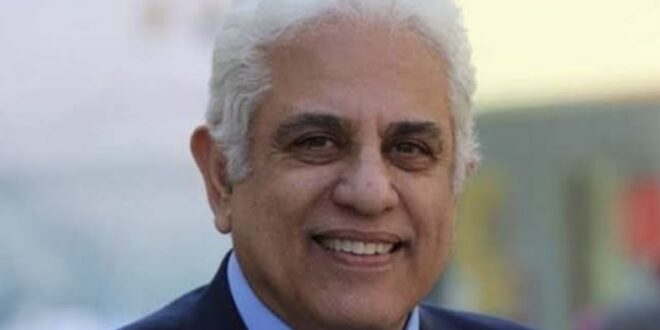Habituation, Passion, and Wonder
By: Hossam Badrawi
“You must step outside the frame of routine and overcome habituation to regain wonder. It is a positive act of will.”
———————————————-
I pondered the relationship between habituation, the absence of wonder, and the withdrawal of passion in human relationships, and I found that there are four philosophical approaches we can turn to.
But before delving into the philosophical side, we must first agree on some definitions to better understand what I am about to present.
Concept Definitions:
- Habituation:
It is a psychological and neurological process where a person becomes accustomed to a certain stimulus (a person, place, or behavior), leading to a decline in emotional or cognitive response over time. Habituation is a survival mechanism, but in relationships, it can lead to emotional dullness. - Wonder (Astonishment):
It is a mental and emotional state that arises when a person encounters something unfamiliar or unexpected. In philosophy, wonder is considered the first spark of thinking and questioning (as Plato said: “Philosophy begins in wonder.”) - Passion:
It is a strong internal emotion towards an idea, person, or activity. In relationships, it is the emotional fuel that keeps a person engaged and renewed. - Relationships:
They are bonds between individuals, whether emotional, intellectual, social, or existential, based on ongoing interaction and exchange.
The Fundamental Philosophical Question:
Does habituation kill wonder, and thus strip relationships of their living meaning?
And can passion and wonder be revived through free will, or is emotional dullness an inevitable fate?
Existentialism Perspective:
Existentialism sees humans as free beings but in constant struggle against meaninglessness and routine.
Kierkegaard spoke of the “silent despair” that grips a person living without true choice.
From this view, habituation in relationships is a form of “escaping existential anxiety,” hiding the inner conflict behind a mask of false stability.
Heidegger, on the other hand, differentiates between “authentic existence” and “fallenness into everydayness.”
When a relationship loses its sense of wonder, it becomes part of “inauthentic existence,” where we treat the other as a “known object,” rather than a living, renewing being.
Passion withdraws because we stop seeing with the eyes of authentic existence.
Summary of the existentialists’ philosophy:
There is no escape from habituation except by renewing awareness and by freely and repeatedly choosing to see the other anew, every single day.
Phenomenology Perspective (Husserl and Merleau-Ponty):
Phenomenology focuses on how we perceive the world: perception is not only sensory but lived.
Habituation kills living perception, replacing it with a “ready-made mode.”
Thus, we do not truly see our partner but rather see a familiar image of them.
Merleau-Ponty notes that the body lives the relationship, not just the mind.
When the body loses its sense of wonder and interaction with the other, encounters become mere performances.
This explains how long-term companionship can turn into lifeless silence — because the meeting is no longer truly happening, but merely re-enacted without genuine perception.
Summary of the phenomenologists’ view:
Wonder can be preserved if we live the relationship as a constantly renewed event, not as a fixed image.
Perspective from the Philosophy of Emotion and Love (Pascal, Descartes, Ibn Arabi):
The heart has “its own logic” that the mind does not fully grasp.
Love begins with wonder, but over time it needs conscious nurturing to keep from fading.
Habituation kills wonder because we treat love as a possession, while it is essentially a constantly renewed act.
Descartes, in his meditations on emotions, believes that passion weakens unless nourished by willpower.
Passion is an act of mind and will, not just a spontaneous emotion.
Ibn Arabi sees love as “the light of perceiving the truth in the beloved,” and the deeper we delve, the more hidden levels we discover.
For him, the absence of wonder means that we have stopped seeing the “divine face” in the other.
Summary of this school of thought:
Love and passion do not die if the heart remains open to seeing the unseen beyond appearances.
Sufi and Poetic Perspective (Jalaluddin Rumi):
The Sufi does not see habituation as a flaw but as a test:
How can you continue to love someone you have grown used to?
How can you remain amazed by the same face you have seen a thousand times?
Thus, boredom, if it arises, can mark the beginning of transformation.
Every moment in the relationship hides a secret.
If wonder is missing, it might be because we have lost our “inner listening.”
Summary of the Sufi philosophy:
Wonder never truly disappears; it is we who close the eyes of our hearts.
Returning to passion is a return to presence — not a return to the past.
Let us not be surprised by the absence of wonder and passion in our relationships.
Let us try once again to rediscover them and immerse ourselves in them.
They are not part of the past, but rather a temporary blindness to the beauty that still exists.
Through habituation, we create a reality — but we can step out of it, not by going back to the past, but by creating a new present and future.
—————————-
To access the references and the philosophers mentioned in this article, please open this link:
https://docs.google.com/…/1UQdfeSgzBRpaRTC7QFmO…/edit…
 Dr. Hossam Badrawi Official Website
Dr. Hossam Badrawi Official Website


